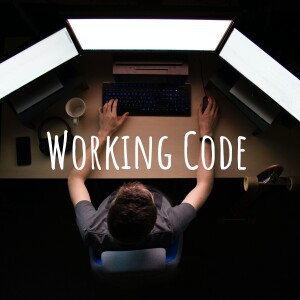
We all love the Hollywood portrayal of the "brilliant programmer" who can step in and just crush it at a moment's notice. We've probably all fantasized about being that programmer. But, that's not how people work. And it's not how teams work. Highly effective developers don't just "crush it" - they cultivate good habits that they then apply consistently, day-in and day-out, for years. This week, the crew discusses which habits make - or break - the most effective developers.
Triumphs & Failures- Adam's Triumph - After struggling to get several Java-based feature flag services configured correctly in ColdFusion (which is one layer of indirection above Java), Adam decided to pull the ultimate power move and created his own open-source, ColdFusion-based feature flag library: Semaphore. While still in active development, it's already feeling very "feature complete". Pull-requests welcome!
- Ben's Failure - Without being able to point at anything in particular, this week kind of just kicked his butt. Without a Product Manager (PM) or an Engineering Manager (EM) on his team, he's felt as though noone is "protecting" him or his people. And, even though an EM may not have actually made a the week better, there's an emotional cost to feeling so exposed. One saving grace, however, is that he received a stellar review from someone on the Customer Facing Team (CFT). So, he must be doing something right.
- Carol's Triumph - She totally survived a mercury-based allergic reaction to something she ate! That which doesn't kill Carol only makes her bolder when it comes to that sweet, sweet shellfish.
- Tim's Triumph - He recently built a custom solution for one of his customers. However, he built it with clean boundaries and multi-tenancy in mind. Which means, now that he's successfully rolled-it-out to his first customer, he's ready to cash-in on that work by using the same solution as an upsell opportunity for his other customers. He's even gone back and refactored some of the architecture using the Clean Code tips from our earlier book review.
- Semaphore - A minimalist Feature Flag engine for CFML apps.
- Taffy - A low friction, extremely simple way to build REST-ful end-points in your CFML apps.
- FW/1 - A family of small, lightweight, convention-over-configuration frameworks, primarily for CFML apps.
- Oh My Zsh - A delightful, open source, community-driven framework for managing your Zsh configuration.
Follow the show! Our website is workingcode.dev and we're @WorkingCodePod on Twitter and Instagram. Or, leave us a message at (512) 253-2633 (that's 512-253-CODE). New episodes drop weekly on Wednesday.
And, if you're feeling the love, support us on Patreon.
More Episodes
 2021-09-15
2021-09-15
 2021-09-08
2021-09-08
 2021-09-01
2021-09-01
 2021-08-25
2021-08-25
 2021-08-18
2021-08-18
 2021-08-11
2021-08-11
 2021-07-28
2021-07-28
 2021-07-21
2021-07-21
 2021-07-14
2021-07-14
 2021-07-07
2021-07-07
 2021-06-30
2021-06-30
 2021-06-23
2021-06-23
 2021-06-16
2021-06-16
 2021-06-09
2021-06-09
 2021-06-02
2021-06-02
Create your
podcast in
minutes
- Full-featured podcast site
- Unlimited storage and bandwidth
- Comprehensive podcast stats
- Distribute to Apple Podcasts, Spotify, and more
- Make money with your podcast
It is Free
- Privacy Policy
- Cookie Policy
- Terms of Use
- Consent Preferences
- Copyright © 2015-2024 Podbean.com






